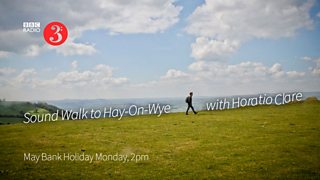
Radio 3 and before it the Third Programme are two networks with a long tradition of taking their time.
The Third Programme, predecessor of Radio 3, was famous for having ‘no fixed points’. Listings in the Radio Times were at best approximate. If a concert took longer than anticipated due to an optimistically packed programme or a conductor with a penchant for lingering over the bloom of each note then so be it. Frequently chaos ensued as things got later and later.
On modern day Radio 3 we like to give things the time they take. So, we’ll do long concerts and operas even if they upset the schedule, and we give dramas the time that they take so that there is no need for shortening. Our talented and patient scheduling maestro, David Ireland, builds in time for all eventualities.
We set a world record for the live premiere of Max Richter’s 'Sleep', the longest single piece of live music ever broadcast – starting at midnight and ending at 8am, with the audience live and at home encouraged to sleep while the music wove its magic. We broadcast La Monte Young’s 'Well Tuned Piano', a five hour piano meditation on the colour magenta, from ‘round midnight one Saturday, for the adventurous listener with time to douse themselves in magenta light and let the music flow. Or Morton Feldman’s six-hour second string quartet, which we broadcast live from Tate Modern last year, again, starting at midnight. Or Colin Morgan reciting – brilliantly – the whole of Louis MacNeice’s long poem on desolation on the brink of war, ‘Autumn Journal’, proving that listeners can give their attention to long-form poetry that has a non-narrative structure.
Respecting the time it takes to do something is an important part of the Radio 3 aesthetic. We can do fast – see Tom Service’s half hour expositions of musical concepts in . But we also like to give the audience the chance to experience works of art that offer an adventure in time as well as content. We recently curated a 12 hour, no talking, ‘River of Music’ that depended for its effect on the intelligent curation of the musical choices and their cumulative effect throughout the day. Classical music is inherently long form, and so to reflect it well on air we need to give things space and time.
At the recent Free Thinking Festival in Gateshead we explored the theme of the speed of life, and whether we were upsetting the rhythms of human existence by taking life at the wrong speed and exploring alternatives to the current fast speed of life.
Building on this theme, early on the May bank holiday we’ll be broadcasting a four hour walk from the village of Cwmdu in the Brecon Beacons to the Hay Festival, undertaken by writer Horatio Clare.
We’ll hear the external sounds of nature and some of his inner thoughts and reflections, including music and poetry, to provide a multi-dimension soundscape of the walk, with both outer and inner landscapes.
It's a walk through the medium of sound art and is an experience all of its own. Hopefully it might inspire those who are lucky enough to be able to go on walks to do so with a new sense of possibility in the sound world around them and an awareness of their own inner thoughts.
First-hand experience and ‘slow radio’ aren't mutually exclusive. Slow or fast, I guess this is an example of us just taking our time – the right time – to do what we need to do to give audiences great experiences, and to allow them to encounter adventures in sound that gives them time to think.
It’s what we do.
Alan Davey is Controller, Βι¶ΉΤΌΕΔ Radio 3
- The is on Monday 29 May from 2pm, on Βι¶ΉΤΌΕΔ Radio 3
